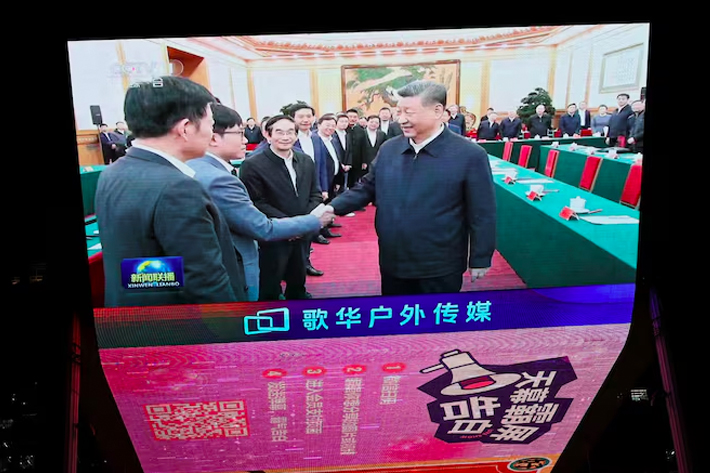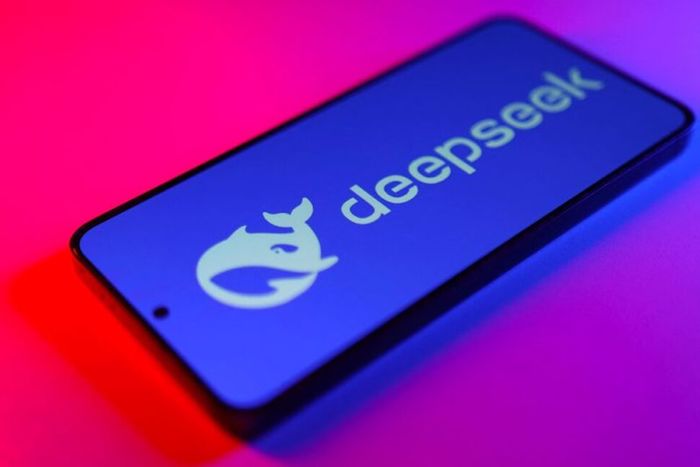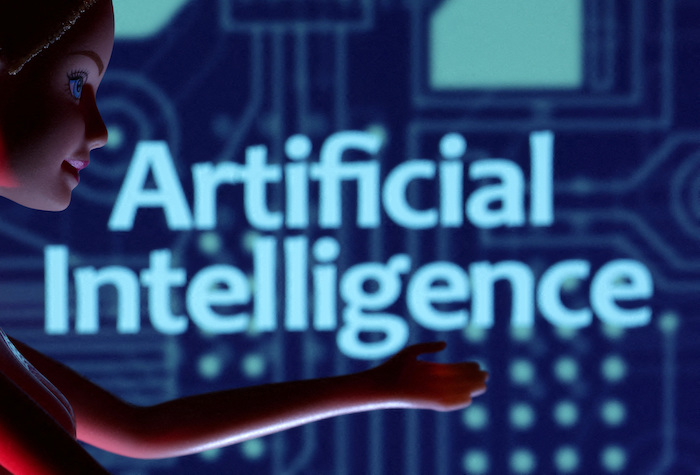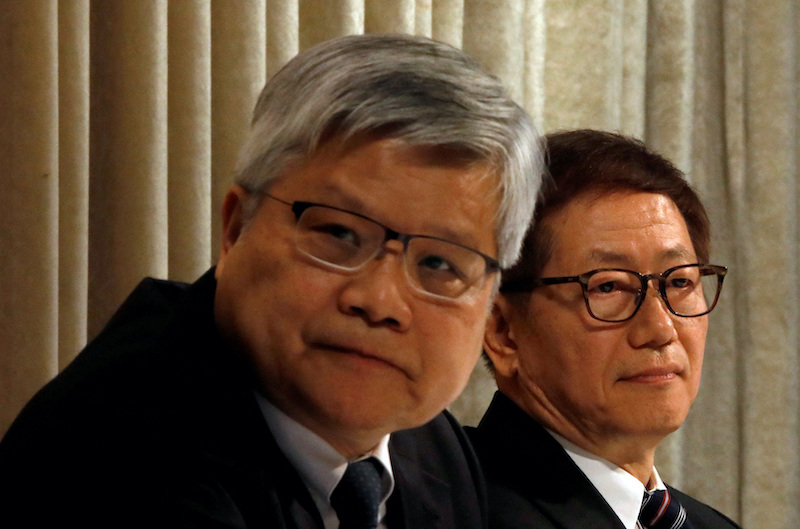A senior researcher from Chinese artificial intelligence (AI) developer DeepSeek spoke publicly for the first time in almost a year after it became a global sensation.

Senior researcher Chen Deli, seen left in a photo he posted on X, made interesting remarks at a government-organised internet conference on Friday, notably that he was pessimistic about AI’s impact on humanity in the future.
Chen Deli took the stage alongside the chief executives of five other companies, including Unitree and BrainCo, at the World Internet Conference in the city of Wuzhen, in the eastern province of Zhejiang. The six companies together are known in China as “six little dragons” for AI.
ALSO SEE: Concern Rising About ‘Security Loopholes’ in Chinese Buses
Asked about DeepSeek’s global success and how its open-source approach would encourage the progress of AI, Chen said he believed that AI could be a great aid to humans as it improved over the short term.
But he said that it could threaten job losses in 5-10 years as it becomes good enough to take over some of the work humans perform. AI firms needed to be aware of these risks, he said.
“In the next 10-20 years, AI could take over the rest of work [humans perform] and society could face a massive challenge, so at the time tech companies need to take the role of ‘defender’,” he said.
“I’m extremely positive about the technology, but I view the impact it could have on society negatively.”
Since it made global headlines in January after releasing a low-cost AI model that outperformed leading US models, DeepSeek representatives have only made one public appearance, when its founder and CEO Liang Wenfeng met Chinese President Xi Jinping at a televised meeting with local entrepreneurs in February.

In June, Reuters reported that DeepSeek was aiding China’s military and intelligence operations.
US lawmakers have previously said that DeepSeek, based on its privacy disclosure statements, transmits American users’ data to China through “backend infrastructure” connected to China Mobile, a Chinese state-owned telecommunications giant.
But neither Liang, or the company, have commented publicly on their success. And they have skipped major Chinese technology conferences in the country in the months since.
Since the company’s stunning breakout, the Chinese government has positioned DeepSeek as a symbol of the country’s technological capabilities and resilience against US sanctions, as the technology rivalry between the two nations intensifies.
While DeepSeek has not released a major model upgrade since January, the company’s subsequent announcements have continued to draw significant attention.
In September, it unveiled an upgrade to its V3 model, which it described as its latest “experimental” version that is more efficient to train and better at processing long sequences of text than previous iterations.
The company has also emerged as a key player in China’s efforts to build its own AI ecosystem and advance the domestic chip sector.
Chinese AI chip companies such as Cambricon and Huawei have developed hardware compatible with DeepSeek’s models.
In August, DeepSeek’s announcement of an upgraded model optimized for Chinese-made chips prompted a surge in domestic chip stock prices.
- Reuters with additional editing by Jim Pollard
ALSO SEE:
Germany Tells Apple, Google: Cut DeepSeek From App Stores
DeepSeek Sharing User Data With China Military, Intelligence: US
China AI Firm Used SE Asia Data Centre to Beat Chip Curbs – WSJ
Trump ‘Doesn’t Want’ Apple to Tie-Up With Alibaba AI in China
Apple Taps Alibaba to Bring AI to Chinese iPhones
Apple to Focus on China, Roll Out AI iPhones to Revive Sales
DeepSeek Breakthrough or Theft? US Probes ‘AI Data Breach’
‘AI Breakthrough’ by China’s DeepSeek Rocks US Tech Giants
US Rules to Limit Investment in China’s Chips, Quantum and AI
US Ban on Investment Not Good For AI Sector, China Says
China’s Bid to ‘Cheat’ a Way to Chip Prominence is Failing: Envoy
























